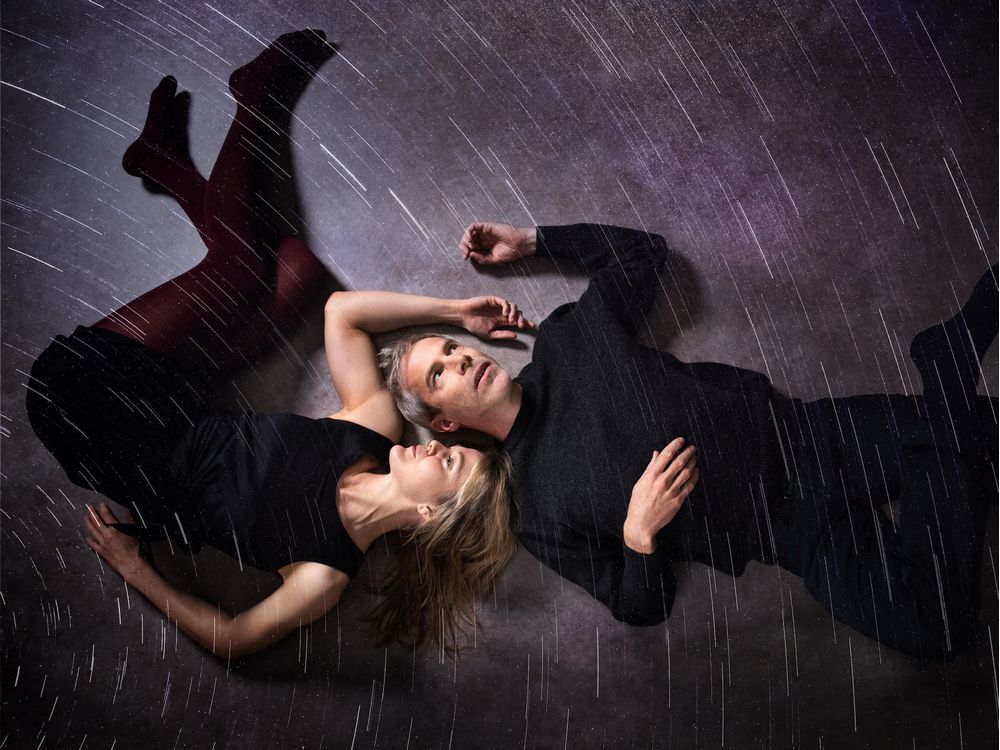Theatre review: Infinity a troubling tale of time and love

Credit to Author: Jerry Wasserman| Date: Thu, 09 Jan 2020 22:10:08 +0000
When: To Jan. 19.
Where: Cultch Historic Theatre, 1895 Venables St.
Tickets & Info: From $26 at thecultch.com
Hannah Moscovitch is currently Canada’s hottest playwright, and this production of her award-winning Infinity from Toronto’s Volcano Theatre features one of Canada’s best actors in Vancouverite Jonathon Young. Smart, funny and sad, Infinity ranges from exquisite to excruciating. Despite its pedigree and novelty, it tells a familiar, troubling tale.
Think Tom Stoppard meets Marriage Story. Young plays Eliot, a theoretical physicist obsessed with time, but mostly with his work and himself. Like Stoppard, Moscovitch weaves philosophy and science into the play’s dialogue and structure, connecting time, music and the gnawing problems of love in thought-provoking laugh lines.
Not at all funny are the repercussions of Eliot’s selfishness for his wife Carmen (Amy Rutherford) and daughter Sarah Jane (Emily Jane King). All three are apparently brilliant, with degrees from Harvard: Carmen a composer and violinist, Sarah Jane a math whiz. But for all their smarts and talent, the women are victimized by love.
A fourth character of sorts is the extraordinary, highly wrought violin music composed by Njo Kong Kie and performed onstage at a frantic tempo by Andréa Tyniec, linking the Eliot-Carmen scenes and Sarah Jane’s monologues. Teresa Przybylski’s set, beautifully lit by Rebecca Picherak, features a handsome wall of parallel lines reaching to infinity.
Carmen’s predilection for men who aren’t good for her lands her in Eliot’s arms just after she has broken up with her fiancé. Her funny line, “I can offer you 15 minutes of sex followed by 45 minutes of crying,” will prove ironically true over a lifetime of disproportionate sorrow with Eliot.
Jonathon Young’s Eliot is a theoretical physicist obsessed with time, but mostly with his work and himself.
Amy Rutherford plays Carmen, whose remark ‘I can offer you 15 minutes of sex followed by 45 minutes of crying’ will prove ironically true over a lifetime of sorrow with her husband Eliot.
As Carmen and Eliot’s life develops from courtship through marriage to family and careers, their scenes are interspersed with Sarah Jane’s accounts of her “whole romantic history.” At first it isn’t clear who this young woman is or how she connects to the central couple. Is Eliot her research supervisor or maybe the professor she’s screwing?
No, we soon learn she is their grown daughter whose life has been a trail of grotesque sexual relationships. Her judgment of men is no better than her mother’s, but her father’s benign neglect seems the primary motivator of her academic ambitions and sad love affairs.
Angry, flustered and constantly verging on a breakdown, Sarah Jane gets a somewhat mannered performance from King that drains some of the character’s poignancy, director Ross Manson’s one serious misstep.
Young and Rutherford do beautiful work, making us root for Eliot and Carmen despite his charming eccentricity turning to monstrous self-interest and her frustrating failure to actualize her own potential as he consumes all the oxygen in their marriage.
A couple of things really bothered me in the end. Though the women are smart and talented, their accomplishments are mostly invisible afterthoughts. While Eliot’s work and ideas get a great deal of stage time, the women’s are utterly subsumed in their relations with men. And both Eliot and Carmen have offstage mothers who carry much of the blame for the couple’s personal dysfunctions.
Moscovitch surely knows that these are traditional sexist tropes. What is she up to here?
CLICK HERE to report a typo.
Is there more to this story? We’d like to hear from you about this or any other stories you think we should know about. Email vantips@postmedia.com.